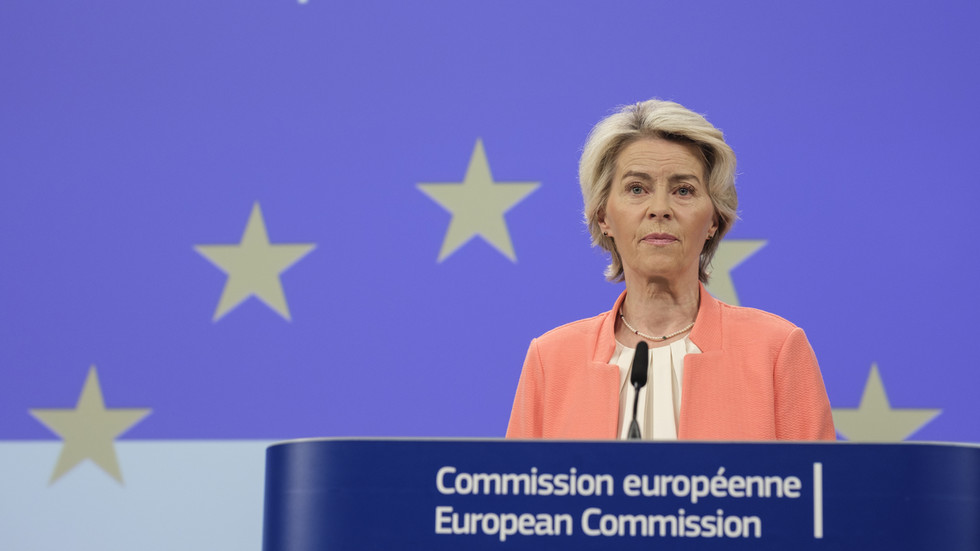The European Commission, under the leadership of President Ursula Von der Leyen, is currently facing scrutiny regarding its management of Covid-19 vaccine procurement deals, particularly in relation to private communications with Pfizer CEO Albert Bourla. The European Court of Justice (ECJ) is set to hear a pivotal case on November 15 that questions whether Von der Leyen unlawfully withheld significant text messages exchanged with Bourla during the critical period of vaccine negotiations. Amid the pandemic in 2020 and 2021, the Commission facilitated collective purchases of vaccines, amounting to approximately €2.7 billion, aimed at supporting EU member states overwhelmed by the pandemic. This procurement process has since drawn criticisms surrounding transparency, leading to the court’s involvement to investigate the matter further.
The Financial Times reported that the ECJ’s Grand Chamber, a panel of fifteen judges that addresses complex legal issues, is expected to delve into the specifics of the allegations. Central to this investigation is the assertion that Von der Leyen’s communications with Bourla have not been fully disclosed despite requests, including a freedom of information request from the New York Times (NYT). Following the publication’s efforts to obtain these records, the European Commission claimed it could not locate Von der Leyen’s text messages, further fueling allegations of obfuscation. The high-profile nature of this case reflects broader concerns about accountability and transparency within EU institutions, especially in times of crisis.
Compounding the situation, Bourla has acknowledged the existence of the messages exchanged with Von der Leyen, contradicting the Commission’s claim that no such records exist. He indicated that their conversations were pivotal in negotiating vaccine contracts. Nevertheless, Von der Leyen has maintained that most of her correspondence with Bourla was deleted. This contradiction raises critical questions about the integrity of the Commission’s actions and the preservation of records that could illuminate how vaccine procurement negotiations were conducted. As the hearings approach, the EU court is expected to investigate these claims rigorously, focusing on whether the messages existed and the rationale behind their reported destruction.
In July 2023, findings from the EU’s General Court highlighted a troubling trend of secrecy surrounding the European Commission’s vaccine agreements. It ruled that the Commission had failed to provide adequate justification for concealing vital details regarding its multibillion-euro contracts with both Pfizer and AstraZeneca. The lack of transparency prompted a group of Members of the European Parliament (MEPs) to seek access to documents related to these negotiations, aimed at ensuring the public’s interest was upheld. However, the Commission’s response was to release only redacted versions of the agreements, keeping the identities of the negotiating team members hidden, which further incited calls for judicial intervention.
As public interest and parliamentary scrutiny escalate, the case before the ECJ has potential implications not only for Von der Leyen personally but also for the EU’s institutional framework. The necessity for transparency in governmental dealings has never been more pronounced, especially in light of the extraordinary measures adopted during the pandemic. The allegations that critical communications were either deleted or destroyed could reflect a broader pattern of accountability issues within EU decision-making processes, potentially undermining trust in its institutions.
The outcome of the upcoming court case could serve as a significant point of reference for future dealings within the European Commission, particularly in how sensitive negotiations are conducted and documented. Furthermore, it may shape the EU’s approach to transparency and public engagement going forward. The broader ramifications of this situation also reflect the challenges faced by political leaders during emergencies, where swift decisions often collide with the demands for accountability and openness to the public. The spotlight on Von der Leyen may ultimately catalyze a necessary reevaluation of protocols surrounding governmental communications, especially in high-stakes negotiations affecting public health and safety.

